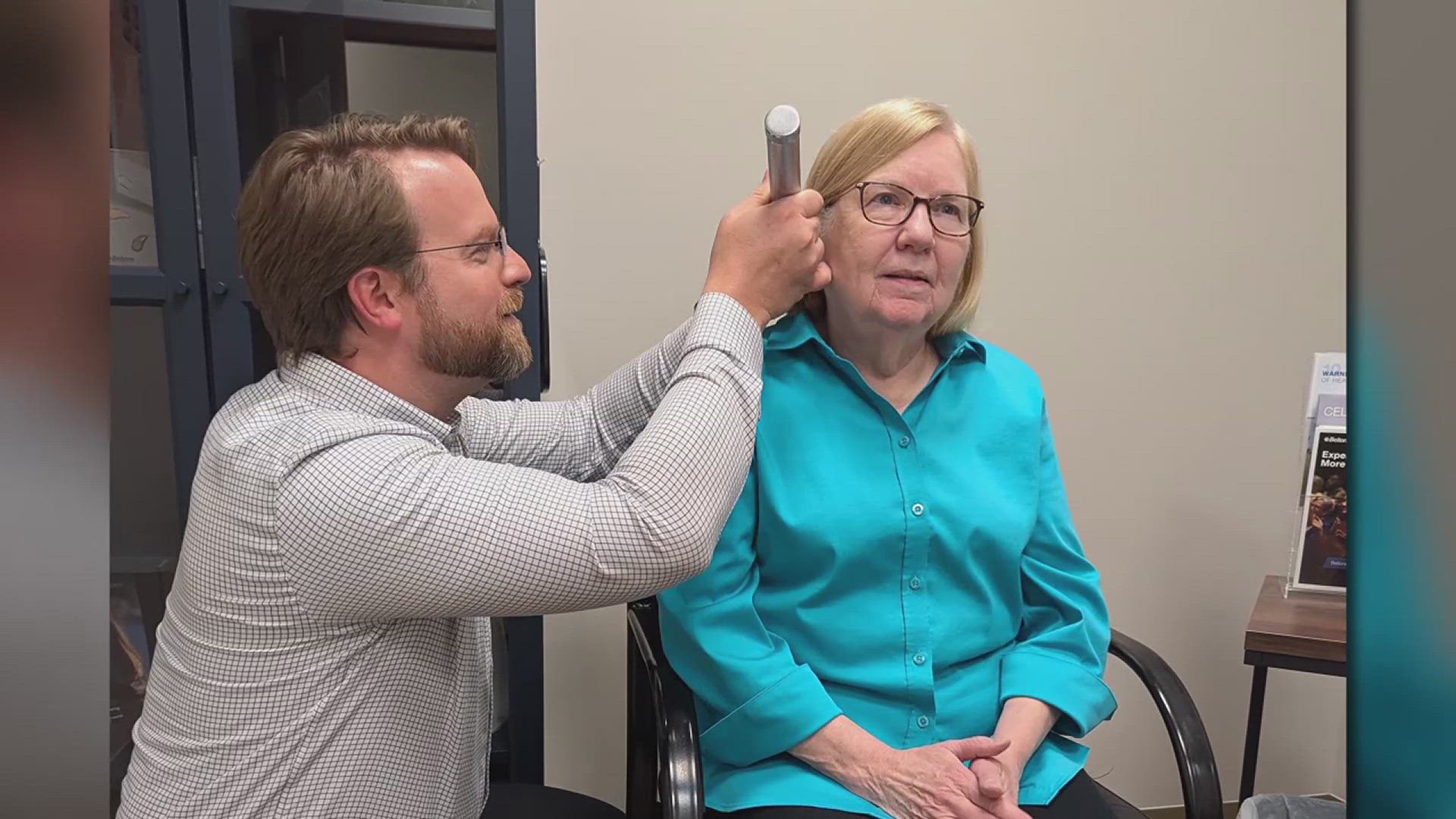DAVENPORT, Iowa — This summer, one of the largest surveys to date shed new light on tinnitus and its widespread impacts on our society.
Tinnitus is the perception of a sound that people around you cannot hear. Think of a ringing in your ears that no one else is privy to. It can happen in one or both ears and can occur momentarily or repeatedly over long durations.
There is no "cure" for tinnitus and its impact on a person's life can be devastating to one's sleep, concentration or ability to hear clearly.
Researchers at the University of Michigan published their findings from a survey of more than 160,000 people. Approximately 78% of respondents reported experiencing tinnitus at some point in their life, and about 15% said they experience tinnitus every day.
The report also found that people ages 55 and up are three times more likely to hear tinnitus daily, compared to those 18-24 years old.
Locally, audiologist Dr. Michael Sharp, Au.D, CCC-A, owns Beltone Hearing Care Center locations in Davenport and Clinton. He says he's seen a rise in tinnitus cases throughout the QCA over the last few years.
"We're starting to see more and more people say they're getting this ringing and it's not going away," Sharp said.
There are many causes of tinnitus, which can be different for each person. However, Sharp says he's seen the reason why patients are coming in with tinnitus complaints has shifted as well.
"We had seen it in the past there was a lot of folks who had jobs that with lot of noise exposure, and there wasn't a lot of regulation around wearing hearing protection," Sharp said.
But now, many of his patients can trace their pain back to headphones being too loud and even from attending loud concerts.
"Headphone manufacturers are kind of getting into a game of how loud can they go," Sharp said. "So you'll that's why you see lots of different versions, whether they're earbuds, the new big over the ear headphones, that then people like to really crank up and listen to their music. Well, we're starting to see more and more people say they're getting this ringing and it's not going away."
He says some people listen to music so loudly that hearing damage can occur in just a short period of time.
"If you listen to your music at about 100 decibels, that's the limit on your phone, you only have to listen for about 15 to 30 minutes before you start causing damage to your hearing," Sharp warned.
Sharp says there's no 'cure' for tinnitus and that some of his patients have to live every day with that ringing or tone in their ears.
Basically, when one's hearing is damaged permanently, the brain starts to fill in the gaps of the spaces its not receiving information in anymore. That results in a perceived sound.
One solution he suggests is to turn down the volume of your headphones or earbuds. This is especially important if you've been listening to music and start to notice a faint ringing in between songs.
iPhone users can also go into settings, then sounds and haptics, then hit the headphone safety button. From there, toggle the switch labeled "Reduce Loud Sounds" down to a lower level.
He also suggests seeing an audiologist even if you think you might be experiencing tinnitus. The effects are much easier to treat when caught early on.
Tune into The Current from 4 to 5 p.m. on weekdays to catch live interviews impacting you, your family and your hometown as well as all of the biggest headlines of the day.

